COVID-19 Stimulus, Round Two: What Should You Know?
After months of intense debate, the House and Senate voted to pass a second COVID-19 economic stimulus bill and the President has signed it into law.1 At a total cost of $900 billion, this 5,600-page bill[1] contains everything from individual payments to taxpayers[2] through increased broadband access[3], all the way through funding for vaccine distribution.[4]
But what other changes can the American people and domestic businesses expect to see from this bill in 2021 and beyond?
What’s in the Stimulus Bill for Individuals?
- Households earning under $75,000 per year (for single filers) or $150,000 (for married couples filing jointly) will receive a $600 direct payment for each household member.2 This means that a married couple with two children could receive a total of $2,400 in stimulus payments as long as their adjusted gross income is below this threshold.
- For singles earning between $75,000 and $99,000 (and married couples earning between $150,000 and $198,000), these benefits will be reduced by $5 for every $100 over the income limit.3
- Those who are unemployed during the pandemic can receive an additional $300 per week in unemployment benefits from January through the middle of March. The enhanced unemployment benefits contained in the first COVID-19 stimulus bill (Pandemic Unemployment Assistance, or PUA benefits) were set to expire on December 31, 2020.4
- Around $25 billion of the COVID-19 stimulus bill has been earmarked for rental assistance, and the bill also extends the nationwide eviction moratorium until January 31, 2021.[5]
What’s in the Stimulus Bill for Businesses?
- Like the first COVID-19 stimulus bill, this bill sets aside a significant sum (around $284 billion) for PPP (Paycheck Protection Program) loans. Eligible businesses include local newspapers, nonprofits, television and radio stations, live venues, independent movie theaters, and other cultural institutions that were largely excluded from the first stimulus bill.[6]
- Another $10 billion in stimulus funding has been set aside to help childcare providers safely reopen their businesses.[7]
What Else Will Americans See from This Stimulus?
Other provisions of the stimulus bill might not be getting as much attention as PPP loans, direct payments, or unemployment assistance, but will likely play a key role in keeping the nation’s pandemic response on track.
- Around $68 billion of stimulus funding will be used to expand COVID-19 testing and assist states with vaccine distribution. Lawmakers hope to make the vaccine available to all Americans at no cost.[8]
- The “Emergency Broadband Benefit” will increase access to broadband internet, particularly important for children engaged in e-learning and adults working remotely.[9]
- Another $45 billion has been set aside for transportation aid, divided among mass transit agencies, Amtrak, highway departments, and airlines.[10]
- A total of $82 billion in funding will go to schools (including private K-12 schools) and universities to help them reopen.[11]
- Around $13 billion in funding will go toward agriculture, providing assistance for farmers and beef, dairy, and poultry producers.[12]
Finally, this bill includes a provision that will serve as a welcome benefit to anyone who has ever received an unexpected medical bill. This provision, purporting to end “surprise medical billing,” will require that patients receive a true cost estimate at least three days before any scheduled procedure. This measure should provide more transparency and help encourage those who are ill to seek treatment without having to worry about the potential cost.5
Important Disclosures:
All information is believed to be from reliable sources; however LPL Financial makes no representation as to its completeness or accuracy.
This information is not intended to be a substitute for specific individualized tax advice. We suggest that you discuss your specific tax issues with a qualified tax advisor.
LPL Tracking # 1-05093315
[1] https://www.usnews.com/news/national-news/articles/2020-12-27/trump-signs-coronavirus-relief-stimulus-checks-into-law
[2] https://www.usnews.com/news/politics/articles/2020-12-21/congress-passes-900-billion-coronavirus-stimulus-after-a-months-long-impasse
[3] https://www.washingtonpost.com/technology/2020/12/22/internet-rebate-coronavirus-stimulus/
[4] https://www.nytimes.com/2020/12/22/us/politics/second-stimulus-whats-included.html
[5] https://www.cnbc.com/2020/12/21/stimulus-deal-extends-national-eviction-ban-through-january.html
[6] https://www.forbes.com/sites/kellyphillipserb/2020/12/20/congress-reaches-an-agreement-on-a-relief-package-including-new-stimulus-checks/?sh=55095271c5e6
[7] https://www.cnbc.com/2020/12/21/covid-relief-child-care-10-billion-dollars.html
[8] https://www.cnbc.com/2020/12/21/covid-relief-bill-includes-about-8-billion-for-vaccine-distribution.html
[9] https://www.axios.com/broadband-access-covid-relief-bill-7-billion-5be48439-c1a4-4927-a0c4-515312a1d281.html
[10] https://www.masstransitmag.com/management/article/21164761/bipartisan-908-billion-emergency-relief-framework-includes-funding-for-transportation
[11] https://www.npr.org/2020/12/21/948744901/here-is-whats-in-congress-covid-19-relief-package
[12] https://www.agriculture.com/news/business/coronavirus-package-allots-13-billion-for-crop-and-livestock-producers
Recent Posts
Why Tax Planning Is a Year-Round Strategy, Not a March Panic
Financial Planning Resolutions for 2026
Essential Estate Planning Steps Every Family Should Take
2026 Outlook: The Policy Engine
Why Long-Term Care Planning Matters
Women & Wealth: Financial Planning Strategies for a Lifetime
How Emotions Affect Financial Decisions
Categories











